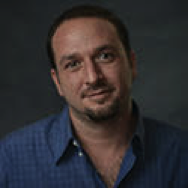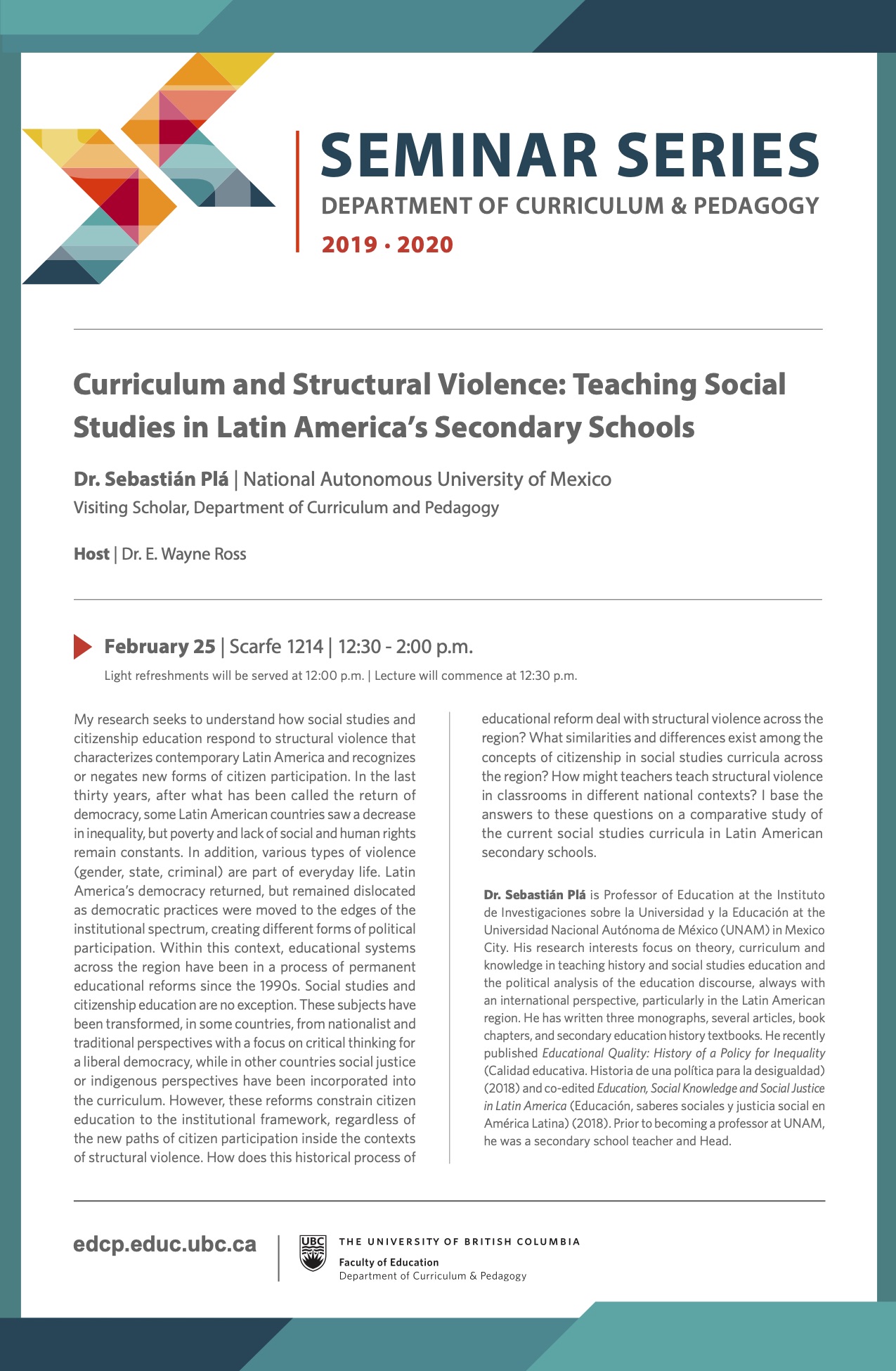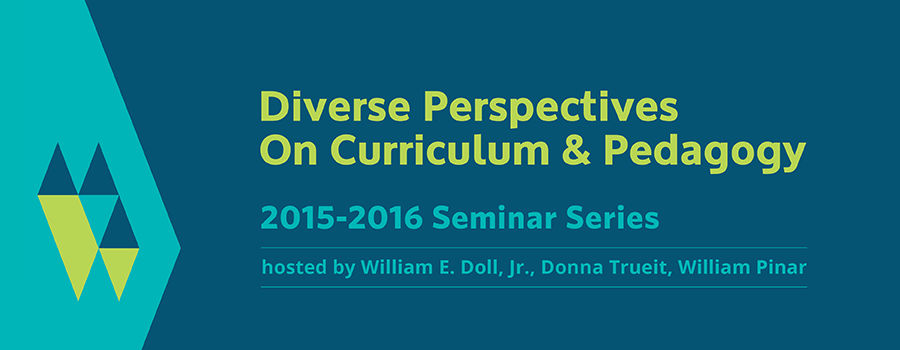-
Recent Posts
- New article in Critical Education: Global Pedagogy and the Question of Palestine
- Special Issue Call for Papers — THE GREAT BEYOND: SURPASSING HISTORICAL DAMAGE AND PIVOTING TOWARDS PROTECTING BLACK BOYS
- New issue of Critical Education, Vol. 16 No. 1 (2025)
- New issue launch Workplace: A Journal for Academic Labor #35 (2024-2025)
- New issue of Critical Education (vol 16 no 2, Feb. 1 2025)
Recent Comments
- E Wayne Ross on The Courage of Hopelessness: Democratic Education in the Age of Empire [Video]
- George Rammell on The Courage of Hopelessness: Democratic Education in the Age of Empire [Video]
- Shannon M on BC elementary school bans touching at recess #NoMoreTag #bced #yteubc #occupyeducation
- SD61 Board Meeting, June 17, 2013: The Record Off The Record: It Sounds So Nice | Lined Paper on BC schools face total budget shortfall of $130 million #bcpoli
- Monday Memo – June 3, 2013 | Surrey Teachers Association on BC Teachers Federation scores landmark victory in academic freedom and freedom of expression #bcpoli
Archives
- December 2025
- November 2025
- May 2025
- January 2025
- November 2024
- October 2024
- September 2024
- January 2024
- October 2023
- August 2023
- December 2020
- May 2020
- March 2020
- January 2020
- August 2017
- March 2017
- February 2017
- January 2017
- September 2016
- July 2016
- May 2016
- February 2016
- January 2016
- October 2015
- June 2015
- April 2015
- February 2015
- January 2015
- May 2014
- November 2013
- October 2013
- September 2013
- August 2013
- July 2013
- June 2013
- May 2013
- April 2013
- March 2013
- February 2013
- January 2013
- December 2012
- November 2012
- October 2012
- August 2012
- July 2012
- June 2012
- May 2012
- April 2012
- March 2012
- February 2012
Categories
- Academic freedom
- Adjuncts
- Administration
- BC Education
- Budgets & Funding
- CAUT
- CFPs
- Civil Liberties
- Commentary
- Conferences
- Contracts
- Corporate University
- Critical Education
- Disputes
- Environment
- Equity
- Ethics
- Faculty
- Free speech
- Governance
- Government
- Idle No More
- Job cuts
- K-12 issues
- Layoffs
- Legal issues
- Organizing
- Privatization
- Protests
- Publishing
- Research
- Salary/Economic Benefits
- Strikes & Labor
- Student Movement
- Student Speech
- Students
- Talks and seminars
- Teachers
- Tenure & Promotion
- Testing
- Textbooks
- Uncategorized
- Unions
- University Presidents
- Violence
- Working condition
Meta
-
Tag Archives: curriculum
Dr. Sebastián Plá | “Curriculum and Structural Violence: Teaching Social Studies in Latin America’s Secondary Schools”
Tagged curriculum, EDCP, structural violence, talks, UBC, Violence
ICES Seminar: Curricular ideologies in the discussion and negotiation of the Chilean social studies curriculum
Institute for Critical Education Studies
Open Seminar
Monday, September 26, 2016
Noon – 1:oopm
Scarfe 1209
University of British Columbia
Curricular Ideologies in the Discussion and Negotiation of the Chilean Social Studies Curriculum
 Renato Gazmuri, PhD
Renato Gazmuri, PhD
Assistant Professor at Universidad Diego Portales (Chile). Dr. Gazmuri received his PhD at the Autonomous University of Barcelona (Spain)
Abstract: The Chilean social studies curriculum has been defined through processes of discussion and negotiation between diverse actors and institutions with different views on the subject. In order to identify and describe these ideologies, a sequential and recursive methodological device was designed and applied in three stages of production and analysis of information: a documentary compilation around three curricular events of debate and negotiation, application of questionnaires, and interviews. At each stage a content analysis was performed. Five curriculum ideologies are identified and described, considering their assumptions about how the curriculum should define the subject matter, as well what its aims, contents and its guidelines for teaching.
The Courage of Hopelessness: Democratic Education in the Age of Empire [Video]
Dr. E. Wayne Ross | Professor, EDCP
January 15, 2016
Short Bio:
E. Wayne Ross is Professor in the Department of Curriculum and Pedagogy at UBC. He has written and edited numerous books including: Critical Theories, Radical Pedagogies and Social Education (Sense, 2010); The Social Studies Curriculum: Purposes, Problems and Possibilities (4th Ed., SUNY Press, 2014) and Working for Social Justice Inside and Outside the Classroom (Peter Lang, 2016). He also edits the journals Critical Education, Workplace: A Journal for Academic Labor, and Cultural Logic.
Abstract:
In this talk I argue there is a disconnect between the rhetoric and reality of democracy in North America that subverts traditional approaches to democratic education. The tropes that have historically dominated the discourse on democracy and democratic education now amount to selling students (and ourselves) a lie about history and contemporary life. Our challenge is to re-imagine our roles as educators and find ways to create opportunities for students to create meaningful personal understandings of the world. Education is not about showing life to people, but bringing them to life. The aim is not getting students to listen to convincing lectures by experts, but getting them to speak for themselves in order to achieve, or at least strive for an equal degree of participation and a more democratic, equitable, and justice future. This requires a new mindset, something I call dangerous citizenship.
Teaching and the ideology of neutrality
This week, in my course on secondary social studies curriculum, we discussed various ideological stances toward curriculum. Predictably, the issue of “neutrality” in social studies teaching came up.
Indeed, my students reported that as part of their professional preparation in the UBC B.Ed. program they have been repeatedly told that teachers should always strive for neutrality in their classrooms, I disagree.
Teaching (and curriculum) cannot be separated from politics. And, adopting the ideology of neutrality is to surrender agency and professionalism as a classroom teacher.
The ideology of neutrality is based upon theories of knowledge and conceptions of democracy that constrain rather than widen civic participation and has consequences that include passive, rather than active, learning; representation of democratic citizenship as a spectator project; and ultimately the maintenance of status quo inequalities in society.
Below is an excerpt from a recent paper I wrote with Kevin D. Vinson that takes up the issue.
Ideology of Neutrality, or What Exactly Are We Protecting Students From?
… Educators often eschew openly political or ideological agendas for teaching and schools as inappropriate or “unprofessional.” The question, however, is not whether to allow political discourse in schools or to encourage particular social visions in the classroom, but rather what kind of social visions will be taught?
There is a misguided and unfortunate tendency in our society to believe that activities that strengthen or maintain the status quo are neutral or at least non-political, while activities that critique or challenge the status quo are “political” and inappropriate. For example, for a company to advertise its product as a good thing, something consumers should buy, is not viewed as a political act. But, if a consumer group takes out an advertisement charging that the company’s product is not good, perhaps even harmful, this is often understood as political action.
This type of thinking permeates our society, particularly when it comes to schooling and teaching. “Stick to the facts.” “Guard against bias.” “Maintain neutrality.” These are admonitions or goals expressed by some teachers when asked to identify the keys to successful teaching. Many of these same teachers (and teacher educators) conceive of their roles as designing and teaching courses to ensure that students are prepared to function non-disruptively in society as it exists. This is thought to be a desirable goal, in part, because it strengthens the status quo and is seen as being an “unbiased” or “neutral” position. Many of these same teachers view their work in school as apolitical, a matter of effectively covering the curriculum, imparting academic skills, and preparing students for whatever high-stakes tests they might face. Often these teachers have attended teacher education programs designed to ensure that they were prepared to adapt to the status quo in schools.
Anyone who has paid attention to the debates on curriculum and school reform knows that schooling is a decidedly political enterprise (DeLeon & Ross, 2010; Mathison & Ross, 2008a; Mathison & Ross, 2008b; Ross & Gibson, 2007; Ross & Marker, 2005a, 2005b, 2005c). The question in teaching (as well as teacher education and school reform) is not whether to allow political discourse in schools or whether to advocate or not, but the nature and extent of political discourse and advocacy. “The question is not whether to encourage a particular social vision in the classroom but what kind of social vision it will be” (Teitelbaum, 1998, p. 32).
It is widely believed that neutrality, objectivity, and unbiasedness are largely the same thing and always good when it comes to schools and teaching. But, consider the following. Neutrality is a political category—that is—not supporting any factions in a dispute. Holding a neutral stance in a conflict is no more likely to ensure rightness or objectivity than any other and may be a sign of ignorance of the issues. Michael Scriven (1991) puts it this way: “Being neutral is often a sign of error in a given dispute and can be a sign of bias; more often it is a sign of ignorance, sometimes of culpable or disabling ignorance” (p. 68). Demanding neutrality of schools and teachers comes at a cost. As Scriven points out there are “clearly situations in which one wants to say that being neutral is a sign of bias” (p. 67). For example, being neutral in the debate on the occurrence of the Holocaust; a debate on atomic theory with Christian Scientists; or a debate with fundamentalist Christians over the origins of life and evolution. To rephrase Scriven, it seems better not to require that schools include only neutral teachers at the cost of including ignoramuses or cowards and getting superficial teaching and curriculum.
Absence of bias is not absence of convictions in an area, thus neutrality is not objectivity. To be objective is to be unbiased or unprejudiced. People are often misled to think that anyone who comes into a discussion with strong views about an issue cannot be unprejudiced. The key question, however, is whether and how the views are justified (e.g., Scriven, 1994).
“A knowledge claim gains objectivity…to the degree that it is the product of exposure to the fullest range of criticisms and perspectives” (Anderson, 1995, p. 198). Or as John Dewey (1910) argued, thoughts and beliefs that depend upon authority (e.g., tradition, instruction, imitation) and are not based on a survey of evidence are prejudices, prejudgments. Thus, achieving objectivity in teaching and the curriculum requires that we take seriously alternative perspectives and criticisms of any particular knowledge claim. How is it possible to have or strive for objectivity in schools where political discourse is circumscribed and neutrality is demanded? Achieving pedagogical objectivity is no easy task. The objective teacher considers the most persuasive arguments for different points of view on a given issue; demonstrates evenhandedness; focuses on positions that are supported by evidence, etc.
This kind of approach is not easy, and often requires significant quantities of time, discipline, and imagination. In this light, it is not surprising that objectivity is sometimes regarded as impossible, particularly with contemporary social issues in which the subject matter is often controversial and seemingly more open to multiple perspectives than in the natural sciences. However, to borrow a phrase from Karl Popper, objectivity in teaching can be considered a “regulative principle,” something toward which one should strive but which one can never attain. (Corngold & Waddington, 2006, p. 6)
The “ideology of neutrality” that dominates current thought and practices in schools (and in teacher education) is sustained by theories of knowledge and conceptions of democracy that constrain rather than widen civic participation in our society and functions to obscure political and ideological consequences of so-called “neutral” schooling, teaching, and curriculum. These consequences include conceptions of the learner as passive; democratic citizenship as a spectator project; and ultimately the maintenance of status quo inequalities in society.
For more on this issue, you may want to read this piece: “Redrawing the Lines: The Case Against Traditional Social Studies Instruction.”


 Follow
Follow
